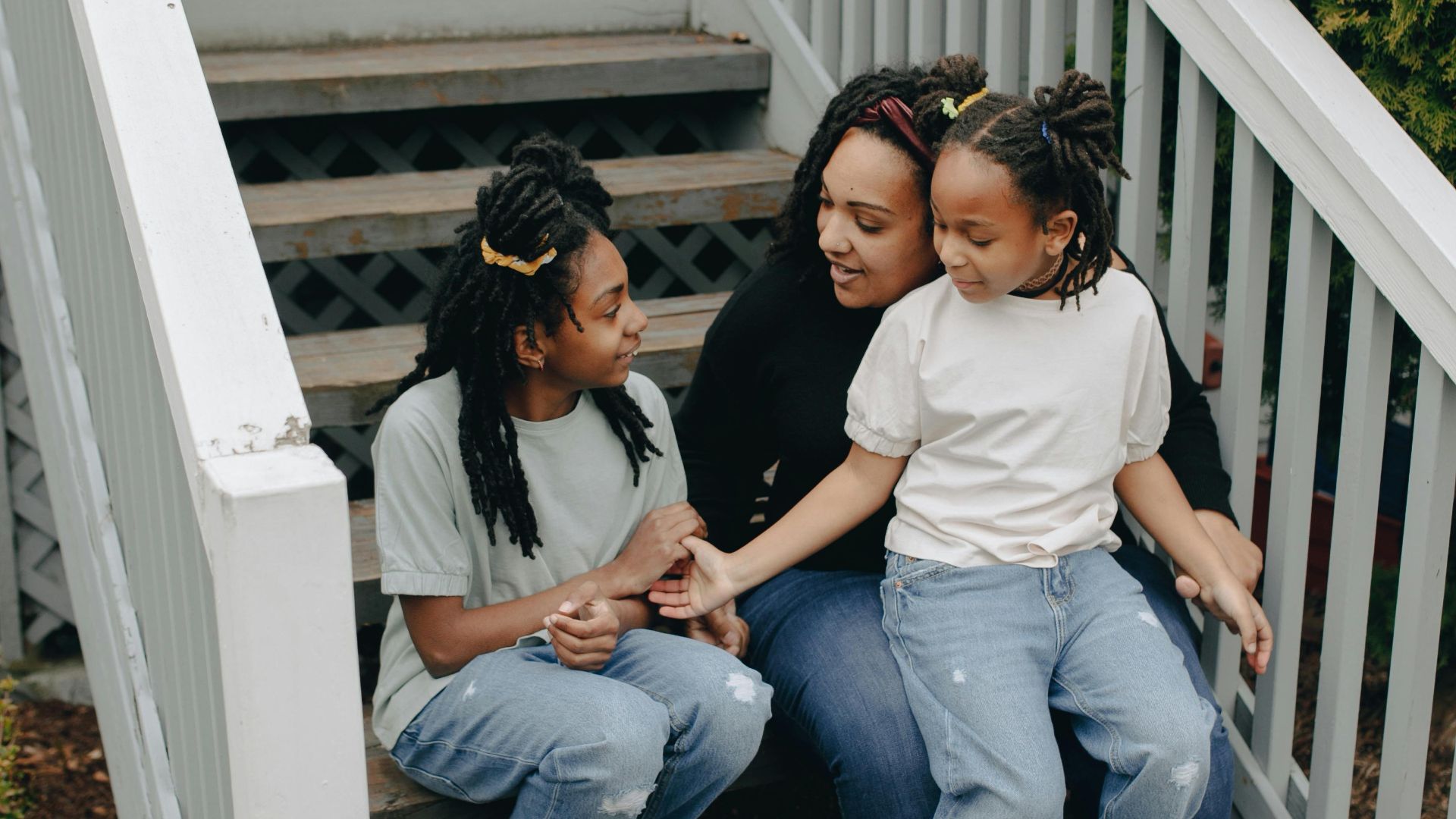More People, More Problems?
Dinner never starts on time when twelve voices are talking over each other. You learn patience, or you go hungry. Big families teach you things in loud and unforgettable ways. But not all of it is as charming as it sounds. Before we get into the sweet stuff, let’s start with the downsides of having a large family.
1. Less One-On-One Time
Individual time with parents often feels rationed. In large households, attention becomes resource-limited and is often split among many. It’s not about neglect but about logistics. Parental involvement drops as family size increases, especially for middle children.
2. Shared Everything
Ownership in large families is more of a suggestion than a rule. Bedrooms often have multiple occupants, and anything left out is up for grabs. While this fosters a sense of shared space, it can also lead to frustration when personal items go missing.
3. Constant Noise Levels
The house never really powers down. At any moment, someone’s on a video call or clashing over bathroom rights. The result? A steady hum of life that rarely fades. That kind of constant noise might energize some, but it leaves others craving quiet corners.
4. Tight Financial Budgets
Raising a child from birth to age 18 in 2023 could cost an average of $331,933, according to USDA estimates adjusted for inflation by the Bureau of Labor Statistics. That number gets serious fast in families of five or more. Vacations become rare, and small treats come with a waiting list.
 Photo By: Kaboompics.com on Pexels
Photo By: Kaboompics.com on Pexels
5. Hand-Me-Down Overload
That shirt? Worn by three older siblings. Those shoes? Stretched and patched to the point of no return. Hand-me-downs often lose their sense of individuality and can make kids feel less than their peers. Children in larger families end up stuck with reused items long past their prime simply because they fit.
6. Limited Privacy
Want to be alone? Try the bathroom if it’s not already occupied. Large families rarely afford personal rooms, and shared spaces make solitude a luxury. Privacy becomes less about physical space and more about timing or headphones with good noise-canceling.
7. Constant Chores
Chores in large families are a never-ending cycle. Older kids, especially teens, often carry a heavier load. With more siblings, the division of labor means they spend far more time on household tasks, leaving little room for rest or personal time.
8. Competing For Attention
Child Development Quarterly reports that children in large families often receive diluted praise, which can affect self-esteem. Milestones like awards or report cards may go unnoticed due to competing demands. When someone’s always crying, celebrating quietly becomes something that slips through the cracks.
 Berendey_Ivanov / Andrey_Kobysnyn on Pexels
Berendey_Ivanov / Andrey_Kobysnyn on Pexels
9. Morning Mayham
Morning routines resemble traffic simulations. Different schools and start times are a logistical circus. Coordinating carpools or relying on older siblings becomes essential. Between forgotten lunches and staggered drop-offs, even a well-planned route can untie before the engine’s warm.
10. Scheduling Is Chaos
In large families, managing schedules is a constant challenge. With things changing by the hour—whether it’s a sick child or an unexpected meeting—the day never goes as planned. No matter how carefully it's organized, someone is always late or ends up in the wrong place.
Sure, it can feel crowded and chaotic, but there’s a whole other side to large families. Let’s explore the positive aspects that make it all worthwhile.
1. Built-In Best Friends
Tension is part of the package, especially when bedrooms and parents’ attention are limited. But out of that mess comes something real. Siblings who've weathered the same storms usually come out more bonded. It’s a connection that starts early and deepens with every late-night talk.
2. Social Growth
According to the OECD, structured curricular activities that focus on emotional awareness and collaboration can strengthen children’s social and emotional development. The same kind of learning happens naturally in large families. Daily routines and shared responsibilities create a real-world environment for them.
3. Diverse Personalities
In a big family, routines shift, and personalities clash daily. That kind of contrast forces everyone to adapt. You learn quickly that not everyone thinks like you, and how to coexist becomes one of the most valuable social lessons.
4. Strong Team Mentality
Large families learn early that survival depends on shared effort. There’s no waiting around for someone else to do it. It’s all hands on deck, whether it’s folding laundry or fixing the Wi-Fi. Over time, that rhythm of collaboration becomes instinctive and hard to unlearn.
5. Group Celebrations
Celebrations feel amplified when a dozen voices sing at once. Birthdays, graduations, or even small wins become communal events to reinforce a sense of belonging. Kids grow up learning that accomplishments matter not just to them but to a whole support circle.
6. Endless Entertainment
With so many personalities under one roof, there's never a dull moment. Impromptu games, spontaneous dance-offs, and silly debates keep everyone engaged. The chaos of a large family turns into a continuous source of fun and unexpected moments of joy.
7. Built-In Support System
Someone always knows the solution, like fixing the printer or surviving the first day of middle school. The informal support system makes large families feel like a living safety net. When transitions hit hard, you are rarely left to figure it out alone.
8. Shared Life Wisdom
Advice travels fast when there are older siblings ahead. Firsthand stories about school or job interviews become valuable lessons. These experiences give younger siblings a solid game plan, helping them handle challenges and take on new situations with more confidence.
9. Leadership Opportunities
Being the oldest often means stepping up. Whether it’s helping with dinner or calming a tantrum, older siblings in large families naturally take on leadership roles. These everyday tasks quietly train for bigger things, like managing projects or organizing life beyond the home.
10. Never Truly Lonely
No one gets to disappear for long. Someone’s always barging in or offering unsolicited advice. While it may seem intrusive at times, that level of constant connection helps keep feelings of loneliness in check. Even small moments of togetherness end up meaning more than they seem.


























